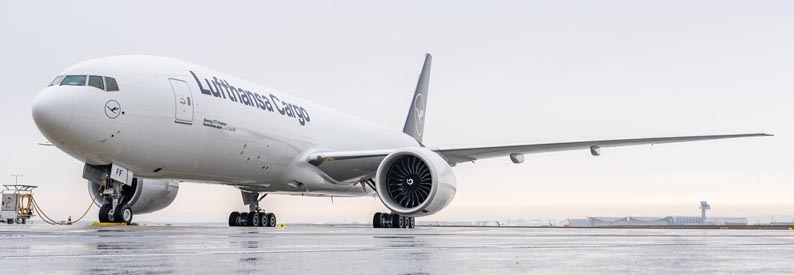Lufthansa Cargo Battles Freighter Delays

Lufthansa Cargo is grappling with significant fleet challenges as delays in the delivery of new freighters continue to impact its operations. Senior director of business development Heike Woerner revealed during a recent company webinar that the carrier now expects to take delivery of the first of seven Boeing 777-8F aircraft in 2028, a full year later than initially planned. This setback is largely due to ongoing supply chain issues that are hampering the production of new freighters, a situation that is not unique to Lufthansa Cargo but is affecting the global air cargo industry as a whole.
The delays come at a time when the global cargo fleet is showing signs of severe aging. Approximately 30% of the aircraft in operation are over 30 years old, a factor that raises concerns about reliability and efficiency in an increasingly competitive market. In addition, the current widebody belly capacity is still 19% lower than it was in 2019, further complicating efforts to meet growing demand for air cargo services. These operational challenges are compounded by external pressures from a variety of geopolitical and economic uncertainties. The airline is facing looming US tariffs and must navigate evolving EU regulatory changes, particularly those affecting the booming e-commerce sector. Moreover, the recent closure of Russian airspace has introduced an additional layer of complexity for airlines that rely on global routes to transport freight.
Despite these hurdles, Lufthansa Cargo remains optimistic about the future of the air cargo market. The airline is actively looking to capitalize on emerging opportunities in fast-growing markets such as India, Viet Nam, and other Asian countries experiencing robust economic development. This strategic pivot comes in response to the stagnating growth rates currently observed in Germany and other parts of Europe, where the domestic market is not expanding at the same pace as international freight demand. The carrier is confident that the increasing demand for e-commerce products, semi-conductors, and pharmaceutical goods will drive growth in the air cargo sector well into 2025 and beyond. Woerner expressed the belief that even in the face of these challenges, the industry’s fundamentals remain strong, and there is significant potential for airlines to enhance their service offerings by investing in newer, more efficient aircraft.
The delays in freighter deliveries, however, underscore a broader issue affecting the entire aviation supply chain. With manufacturers struggling to overcome persistent logistical and production setbacks, many airlines are forced to reassess their fleet renewal strategies. For Lufthansa Cargo, the setback with the Boeing 777-8F is a stark reminder of the vulnerabilities inherent in relying on complex global supply networks. Nevertheless, the airline is committed to navigating these challenges by leveraging emerging market opportunities and adjusting its operational strategies to better align with the evolving landscape of global air transport. As the industry continues to adapt to these external pressures, Lufthansa Cargo’s proactive approach in seeking new market opportunities and its commitment to fleet modernization signal a strategic resilience that could serve as a model for other carriers facing similar challenges in an uncertain economic climate.
Related News : https://suspicious-zhukovsky.67-21-117-18.plesk.page/?s=Lufthansa
Sources: AirGuide Business airguide.info, bing.com, ch-aviation.com
